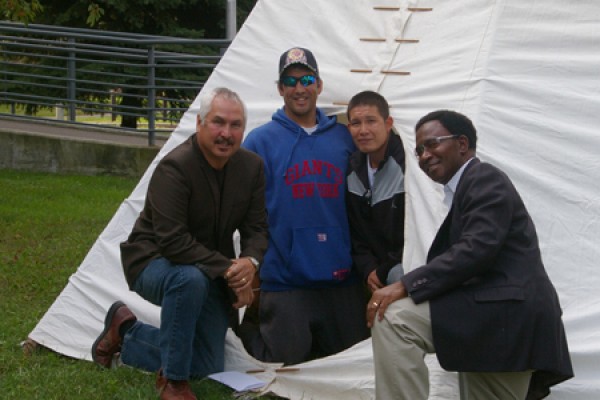A new program to encourage Aboriginal students to pursue science-related careers will offer local grade schoolers field trips, experiments and lectures from faculty members, current science students and Aboriginal instructors.
The 4Winds Science Technology Engineering Math (STEM) and Beginning Time Teachings Aboriginal Youth Science Camp, for students in grades six, seven and eight, will run Saturdays on campus.
“Most Aboriginal students are not choosing those subjects, and we hope to encourage them to pursue postsecondary education and look further into the hard sciences,” says Russell Nahdee, coordinator of the Aboriginal Education Centre.
The program topics will present STEM subjects in the context of indigenous knowledge and culture in the areas of health, food, shelter and technology. Aboriginal communities used science practices prior to European contact, a primary instance of which is the drying process used for preserving meat and berries, says Nahdee. The teepee, canoes, toboggan, igloo and snowshoes are iconic, economical pieces of engineering in their own right.
Education professor Anthony Ezeife will help with the camp. He has extensive experience in uniting nature and traditional practices with STEM subjects. Growing up in Nigeria, then colonized by the British, Dr. Ezeife used herbs to cure diseases, but in school, he was taught science with examples that were foreign to his environment.
“I remember learning about friction, and the example in the textbook had to do with ice skates,” he recalls. “I could not relate to this because there are no skating rinks in Africa. This disconnection makes the relationship between culture and school subjects even more important to making science less foreign to the students.”
The program, funded by the University of Windsor Strategic Priority Fund, also involves a partnership with the Can Am Indian Friendship Centre of Windsor and the UWindsor Faculty of Science.
— article and photo by Chantelle Myers

